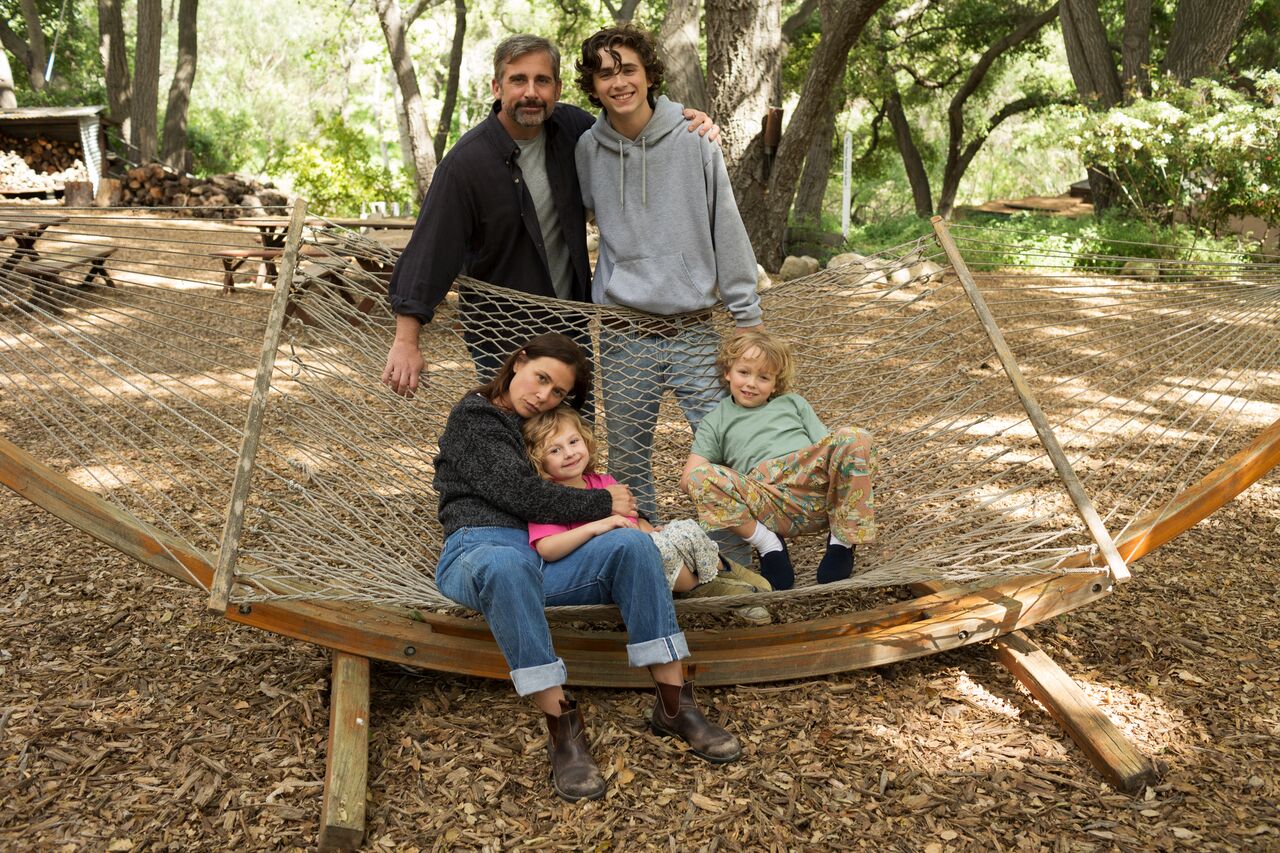Felix van Groeningen’s adaptation of David and Nicolas Sheff’s respective autobiographies is a powerful tale of a young man stagnated by his drug addiction, and his father, struggling in coming to terms with the matter. Such should provide any filmmaker with the means to craft a thought-provoking picture that doesn’t shy away from the harsh reality of addiction, and yet, Beautiful Boy is restricted by its narrative shortcomings.
At the centre of this film are a pair of exceptionally affecting performances from Steve Carell and Timothée Chalamet, portraying father & son. Carell continues to escape his comedic sensibilities in a slew of diverse serious roles, with this likely being his most demanding yet. The 56-year-old seamlessly navigates between scenes of unmitigated outbursts, in which Carell integrates a voice-cracking demeanour for added realism, and others where he emotes entirely through his facial expressions in the aftermath of an impossible decision.
Speaking of the greats, Chalamet (hot off of Call Me By Your Name) once again brings a performance that cements him as a young acting powerhouse. Depicting a character dependent on crystal meth is an arduous task for any actor, despite of such, the young talent provides a suitably chaotic performance that is synonymous with the deadly drug.
Carell and Chalamet represent the core of emotional investment in the film, unfortunately to a fault, as all the film’s female characters fall to the wayside. Amy Ryan rarely ever shares the screen with the two leads and is largely relegated to merely being on the other side of the phone, whilst Maura Tierney has countless dialogue-free scenes where she fades into the background. Kaitlyn Denver’s ‘Lauren’ feels particularly mistreated; a young woman with near-zero characterisation and given absolutely no resolution.
It could be argued that Groeningen is attempting to invoke a sense of distance between the genders in his picture, as David learns from his female counterparts that removing himself from Nicolas may be what saves him, but it is ultimately at the expense of female characterisation. For that, it does not feel justified enough and the film is therefore in desperate need of added femininity.
The theme of distance is felt extensively under Groeningen’s direction and once again with mixed results. A scene where David consults a homeless drug addict employs a clever camera trick with mirrors, making David seem like he is sat far behind at a perpendicular angle, despite sitting across from her. However, a similar scene between David and Nicolas lacks the same inspiration, resorting to a monotonous series of repeated low angle shots below a diner table.
This inconsistent vision further undermines Beautiful Boy’s structure, as it juxtaposes intensity with flashbacks to happier times. One such example being when David comforts Nicolas after finding him passed out in a diner, cutting to a scene where David sings the titular John Lennon track to a younger Nicolas. Whilst this can be incredibly effective, it also serves to puncture the sustained tension felt over Nicolas’ downfall, leading to scenes of emotional resonance missing their intended mark.
Luckily, by Beautiful Boy’s climax, it does fulfil its promises of delivering a tender and thoughtful story. Unfortunately, it is not quite enough to make the entire two-hour experience satisfying. It is clear what was intended under Groeningen’s direction, but it provides turbulent results at best, producing a very decent film that could have been substantially better.

